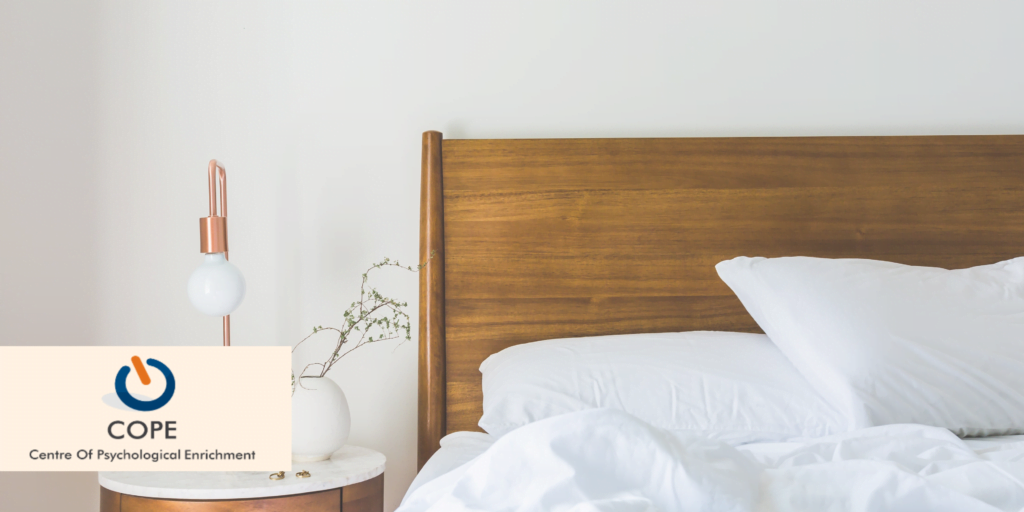What is your sleep drive?
Think of sleep drive as your need for deep sleep – deep sleep is responsible for restful sleep. As you wake up in the morning your sleep drive is at its lowest. As the day goes by your sleep drive slowly builds up and is at its highest at night, just before you fall asleep. This should mean that getting into bed at night and falling asleep is an effortless task. However, many of us can struggle to fall asleep. As we lie wide-eyed, staring at the ceiling, counting sheep or worse…counting hours left before we need to get up again.
So why is it so hard for some people to fall asleep? Often, the answer is the lack of a strong sleep drive. In other words, when going to bed, a persons’ sleep drive may not be as strong or high as it should be for them to fall asleep effortlessly. How can we fix that? Simple, there are various behaviours and techniques one can implement throughout the day to ensure a strong sleep drive at bedtime.
How do you improve your sleep drive?
1) Limit your time in bed
In general, you should only spend time in bed to sleep. So…
Do not sleep in: Imagine this, it is a Sunday morning, and you have nothing better to do so you decide to sleep in. Spending more time in bed in the morning means that it would take you longer to build a strong enough sleep drive to fall asleep on Sunday night. This means that even if you go to bed at your usual bedtime, it will take you longer to fall asleep – which can mean a lot of tossing and turning and frustration for you, especially if you must wake up early Monday morning for work.
Do not go to bed early to make up for lost sleep: Now imagine this, because you had to wake up early for work on Monday morning you ended up not getting enough sleep. So, you come back from work and decide to go to bed early. But going to bed early after a poor night’s sleep stops the build-up for your deep sleep too early. This means that despite going to bed early you will end up not falling asleep till later and may even end up waking up in the middle of the night due to a lack of strong sleep drive present.
Can you see how easy it is to get in a cycle of getting poor sleep? So, make a habit of waking up at the same time every morning (yes even Saturdays and Sundays) and do not try to sneak in more sleep by going to bed early – it will likely do more harm than good.
2) Do not nap
Napping during the day robs you of some of the deep sleep you would have got at night, and it stops the build-up of your sleep drive. So, when you get up from the nap, you have to re-build the sleep drive you lost, and it is unlikely you will have built a strong drive for deep sleep by the time you go to bed at night – if you have a weak drive for deep sleep – your sleep may not be as restful and you may wake in the middle of the night more often.
3) Be active during the day
Increasing your physical activity is good for your health, your mood, and your sleep. Being physically active can really help boost your sleep drive and can increase your need for deep sleep. If you are being inactive most of the day, you are less likely to be able to have a deep, sound sleep.
4) Limit or eliminate caffeine
Caffeine interferes with the build-up of your sleep drive, similarly, to napping. Therefore, you should be aiming to consume no more than 250 milligrams of caffeine in a day and try to NOT have caffeine within the 6 hours of your bedtime.
Further information on healthy sleeping can be found in the book Goodnight Mind by Carney and Manber, 2013.
